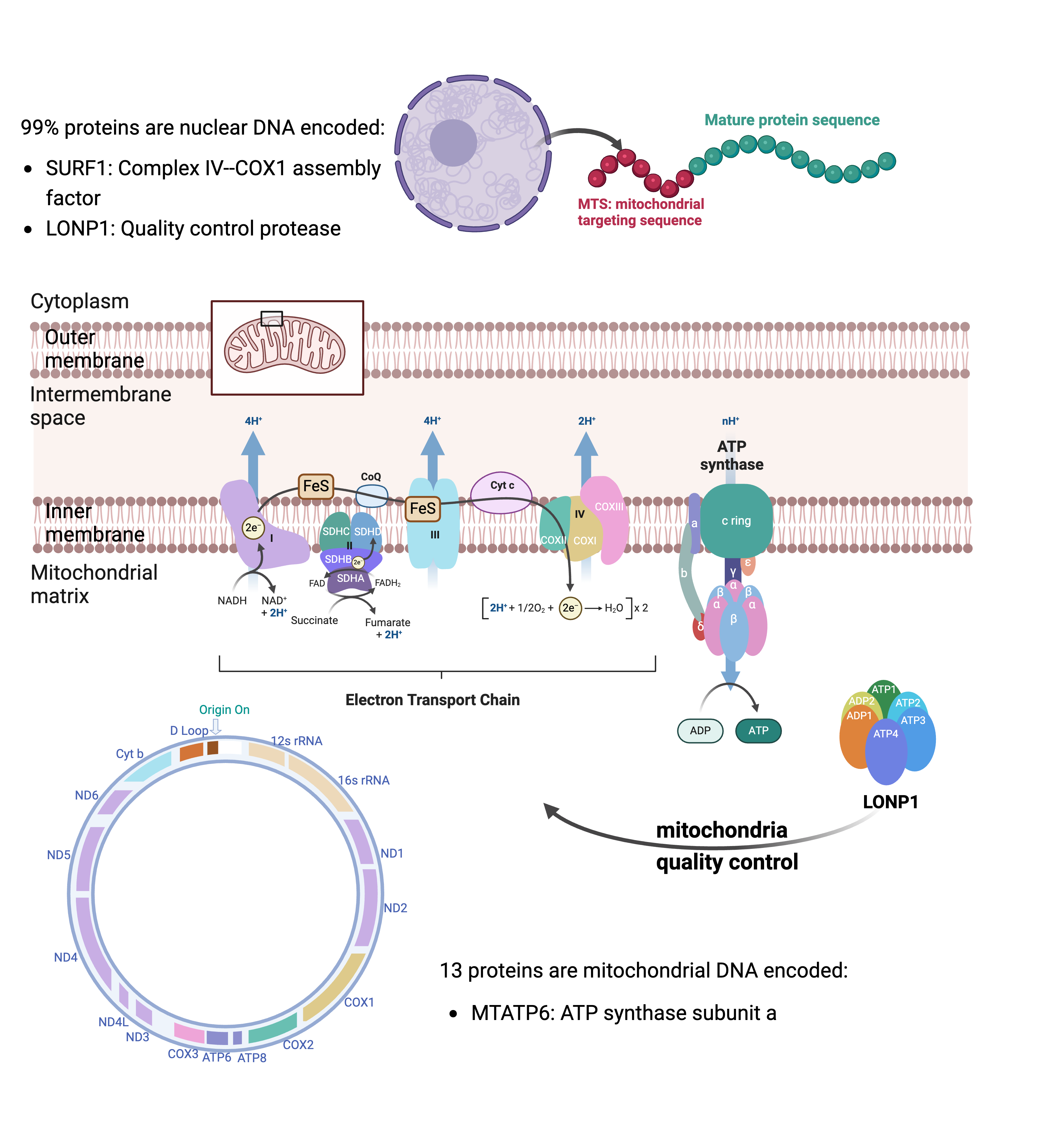Ongoing projects:
Here are some projects we are currently focused on:
1. Develop a mouse model and a gene therapy for MTATP6 Leigh syndrome
We are developing the first disease-relevant mouse model and an AAV-based gene therapy for mitochondrial DNA-encoded ATPase 6 (MTATP6)-related mitochondrial diseases. Mutations in MTATP6 are the most common cause of impaired mitochondrial ATP synthesis, leading to neurological mitochondrial diseases. There are currently no approved treatments for any of its disease forms. Unlike the vast majority of genes that are being targeted for gene therapy, the MTATP6 gene is encoded in the mitochondrial genome, which poses greater challenges.
2. Develop a gene therapy for LONP1 diseases
The LONP1 gene encodes the mitochondrial Lon protease, an enzyme that is important for mitochondrial protein quality control, electron transport chain complexes assembly, and mitochondrial DNA gene expression and maintenance. Mutations in LONP1 can lead to various disorders, such as CODAS syndrome (cerebral, ocular, dental, auricular, and skeletal anomalies) and other developmental defects. Certain mutations in LONP1 exhibit dominant negative effects. Thus, we are developing a combination of silencing and gene replacement approach to benefit the board LONP1 diseases.
3. Develop genetic tools targeting specific cell states with mitochondrial dysfunctions
Mitochondria requires precise protein expression, but a major challenge for developing a precise gene therapy approach is the lack of understanding of the endogenous regulatory mechanisms. Therefore, we aim to answer the questions of how protein expressions are regulated and whether these regulations are tissue or cell-specific. We will then leverage on this information to enhance the design of our gene therapy approach for better efficacy and safety. 
